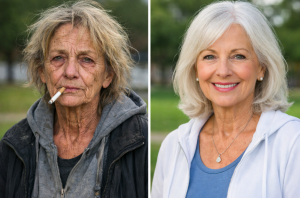“Risk means more things can happen than will happen.”
-Elroy Dimson
I was with my friend, Srinivas, in one of the isolated places of the US earth, hot and humid, in Seymour, Texas.
This trip with Srinivas, was an adventure, a week’s vacation, a search of life through some difficulty in a slightly different way.
My chemistry with Srinivas was pretty solid and exploratory for many reasons over the years.
We have known each other for ten plus years now, as we both are scientists in two different companies and very interested in philosophy and psychology.
Mandeep was an overall man of the motel, where we’re staying in Seymore, Texas.
I’d known Mandeep back in 2020 on my first night in the same motel as I’d stayed there, and had a nice dinner.
It was my second time staying in the same motel, and this time I was with Srinivas.
Mandeep, didn’t seem exciting enough to his job, at least for me. He’d seemed utterly and profoundly pale, a lanky tall man somewhere in his fifties, as quiet as the isolated Seymour motel itself.
He was serving us ice water and some snacks.
Greed, fear, envy, and ego drive us to take unstudied risks
I asked him, “how did you end up here?”
He said, “There is long story.” “So, what is the story?” I asked. “I was a stock trader all in my twenties and thirties,” he continued.
“What kind of stocks did you trade?” I asked, expecting to know something about trading stocks.
“I traded financial sectors and real estate,” he replied simply with no explanation. “I was one of the crazy risk takers, I lost my home and all of my balance due to herd mentality.”
As he said that, I remembered a great investor, Howard Marks, author of “The most important thing” and his words “greed, fear, envy, ego, and capitulation are our common human characteristics. They compel us to take action when it is shared by the herd.”
Mandeep told us how he’d graduated from Upenn, Philadelphia, in the early 2000.
Here, in the middle of nowhere, serving plates, cleaning and changing bed sheets, was a guy who’d lost everything in his life by trading stocks.
I asked again,”how did you start trading?”
When he was a kid, he said, his father used to skip all pages of the newspaper and directly go to the finance section.
His father used to say, “if you’d owned a share of this company yesterday, you’d have $1 more today than yesterday. The stock went up automatically. “
I was 14 years old and I asked my dad, ” Can I make money without work?”
My dad said “yes, but you have to know the stock to make money. If you don’t know stock, you won’t make money, you’ll lose money.”
“Well, I wanted to make money without any work but never studied stock, so here I’m now, I couldn’t understand what my dad was teaching me,” he said.
I realized with amusement how unpredictable our life is.
The world really is stranger and unpredictable than we could imagine.
The funniest thing about life is we don’t know what will happen tomorrow, or the day after tomorrow, or a week from today.
I asked him again, “So why’re you here in this place?”
Mandeep shrugged.
“After losing everything that I had, God again played another game to me,” he added.
A car accident in New Jersey killed his wife and two children, he said quietly looking over the ceiling.
His own head was injured so badly that he became normal after 3 years, his trading business was over.
“I needed to get out of New Jersey,” he said.
“This motel owner needed a helper and I needed a job in isolation, far away from my own place in New Jersey,” he said without a trace of self-pity. “So here I’m.”
“When I look back on my life, I was one of the crazies. I was an obsessive, addictive, maniacal, masochist risk taker, I wasn’t only a risk taker actually, I was a freak trying to become a millionaire overnight,” he expressed softly.
“I would buy today and sell tomorrow, my risk was heavily concentrated with the time horizon. I always acted in anticipation of market prices rather than market prices after they occurred.”
“But no regret now, the only thing is my wife and my two children’s faces suffocate me sometimes at night during sleep,” he became emotional.
“I cry because I feel good when I cry occasionally, I also feel sorry for myself,” he added.
Risk is a future event so impossible to know fully
I couldn’t sleep well that night.
I was awoken, mainly catalyzed by Mandeep’s life story. Sorting through his memories also made me see something inside human life.
Getting up from a complete loss personally and professionally is an act of pure faith and trust.
I didn’t really know how Mandeep’s mental crisis would end, but I’d believed he could find an answer.
It was another paradox of life, by getting up from a devastating loss, we find out how to get going. By believing that an unseen source of strength exists, it becomes the new source of survival.
Mandeep is acting as though he is among the losers, and perhaps he will eventually be the winner because he might be living the unlived part of life now.
Many years ago, one of my friends gifted me a book on my birthday “The War of Art” by Steven Pressfield. I didn’t read this book immediately, I never got interested to read it. After certain time, by some reasons, I read it. I regretted a lot by not reading it immediately after reading the book. Even today, I read and reread it every time when I feel low point, discouraged, and going through hardships and sufferings. There are many nuggets in this masterpiece to live again and again. It works and particularly my favorite lines from “The War of Art“, “Most of us have two lives. The life we live, and the unlived life within us. Between the two stands Resistance.”
When Mandeep said he was a crazy risk taker, I remember a story, one of the investors shared about a gambler.
I was a postdoc back then.
One day a gambler heard about a horse race with only one horse in the race competition, so he bet all of his borrowed money on it. Halfway around the track, the horse jumped over the fence and ran away.
Think about the mind of the gambler, what he’d thought before betting on the horse and what actually happened.
I’d seen a similar experience a few years ago. One of my friends bought a brand new car, paid money, and finished the paper work at the dealer. So he finally drove the car and headed towards his home. Immediately after he made exit from the dealer, he was hit by another reckless driver and got into a crash. Fortunately, he got only minor injuries but his brand new car got damaged completely.
The essence is, there is nothing guaranteed in our life, there is almost nothing without risk in our life because risk is invisible.
Risk is always associated with future events, it’s impossible to know for sure what the future brings.
Mark Twain expressed it best, “It ain’t what you don’t know that gets you into trouble. It’s what you know for sure that just ain’t so.”
There is a very diplomatic word the legal system uses all the time.
Rebuttable presumption, that clearly indicates something that should be presumed to be true until someone proves otherwise.
So, risk in our life is exactly the rebuttable presumption.
Real work means taking risks but with many second thoughts with slow thinking
Up until now I’d generally agreed with the modern view of the world that faster is better and faster comes only with risk. If we need anything faster it means it is riskier, if we drive the car, we sense it what it means. Anyway, what we are learning from society is risk is exciting and futuristic, we should take more risks. Secureness is slow and retarded.
Risk is like Zen, which teaches that all enlightenment comes through stillness of the mind and the body. This lack of motion is not a measure of idleness but strength, discipline, focus, and character.
After reading “Zen in the Art of Archery,” by Eugen Herrigel, a German Philosopher, a classic art on eastern philosophy, I clearly understood what the target means in our lives. Target is only the perfect release of the arrow, and then we must stop thinking. When we perfect the release without conscious thought and expectation, we achieve an archer’s place of perfect calm and that perfect calm, of course, leads to perfect accuracy.
Many value investors like Warren Buffett and Howard Marks say that risk is another name of perfect calm in our lives but calmness is required to evaluate the risk in advance.
Calmness leads to deeper thinking, a secondary thinking, which is different from many others.
Deeper thinking doesn’t count emotions, it only counts reality.
Of course, risk takers are courageous people. The success and failure in risk taking is a measure of our moral strength. A rich man’s wallet only weighs him down when he becomes a reckless risk taker, and a poor man can beat him by accepting calmness on risk. The real work doesn’t mean we shouldn’t take risks but to give many second thoughts on them properly through slow thinking.
Daniel Kahneman, Nobel laureate and author of “Thinking, Fast and Slow” said, “When we face with a difficult question, we often answer an easier one instead, usually without noticing the substitution.”
Life is unpredictable, we have to accept the inevitability of change and adaptation, we have to accept the ups and downs in life. Our life runs in stages, our body becomes old, many things will appear and disappear. We must recognize, accept, cope, and respond to the change.
Our environment and circumstances will change in many ways beyond our control.
I learned the same lesson from Mandeep’s life.
Life is easier than we think but a lot difficult than it looks.
But, still, the greatest use of life is to spend it on something that will outlast it, I still think Mandeep is on the same path.
He had two kinds of risks, one he could control or minimize in some ways like stock trading, but the other probably not like car accident.
Therefore, our life juggles around various kinds of risks, always, everyday, and every moment to expect something.
Nassim Nicholas Taleb, author of “The Black Swan” said, “The payoff of a human venture is, in general, inversely proportional to what it is expected to be.”
Conclusion
We have a tendency to overestimate what we’re capable of knowing and doing, this is very immature thinking.
What happens if the pilot is overestimating the mileage and fuel capacity and the President is overestimating the governance?
We must accept our limitations of what we know and what we can do considering our limits.
In life, we come across with many emotions, we must not flow with them rather we should recognize them and face them.
As Daniel Kahneman, Nobel laureate and author of “Thinking, Fast and Slow” said, “Our slow thoughts are always stronger than our emotions, that’s the reason we stop and study risks before to act.”
By studying risks, we can’t stop them but we become more aware of their consequences in our lives.
Again, there is a big difference between reading the business book and doing the business.
Reading is a guess but doing is exact calculation.
Risk in our lives is the composite mixture of both.
Risk is really a question of guess, exact calculation and balance between slow thoughts, circumstances, and timing for action.
Howard Marks, investor and author of “The most important thing” said beautifully, “we never know where we’re going, we ought to know where we are.”
Yam Timsina, PhD, writes primarily on health basics, scientific progress, social upliftment, and value creation.
Disclaimer: “Please note that some links in this post are affiliate links, which means I may receive a small commission if you make a purchase through them, at no extra cost to you.”





